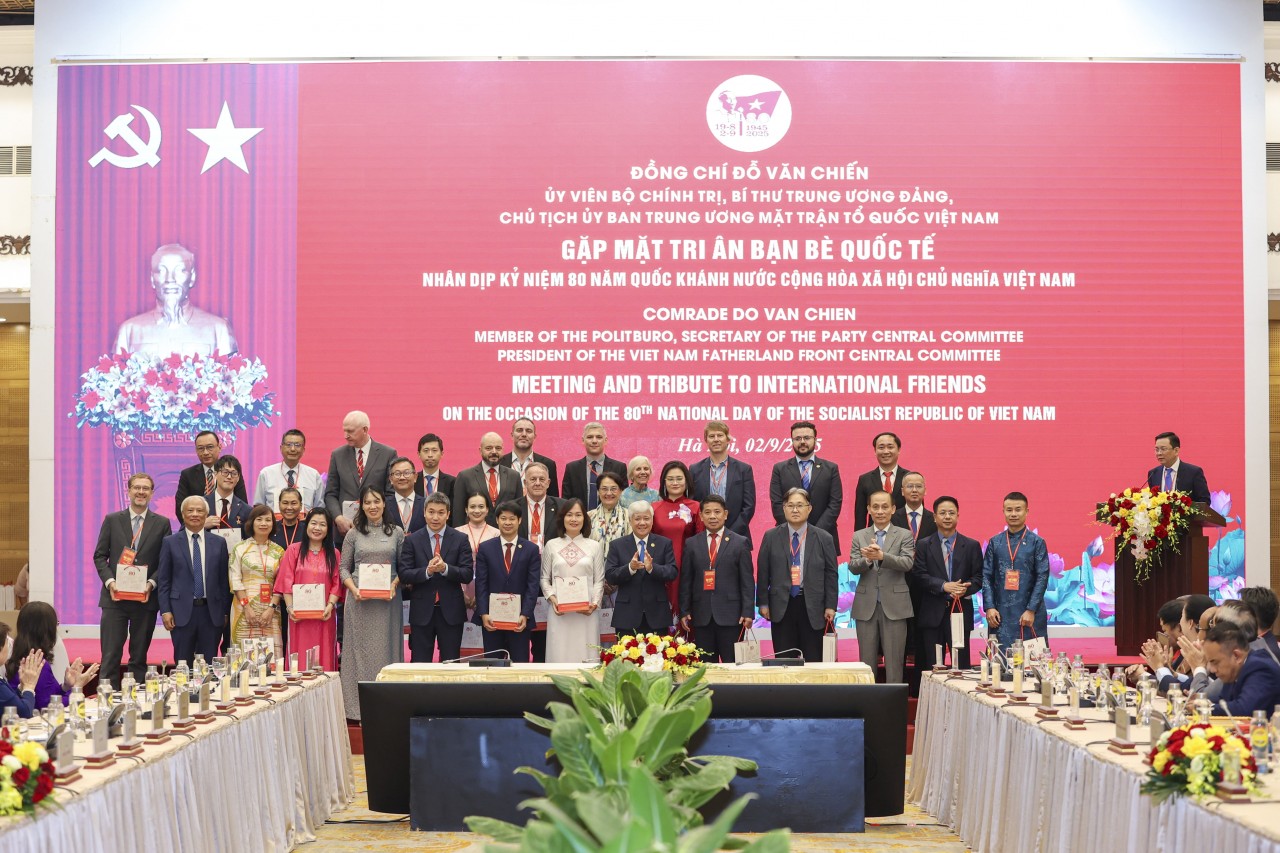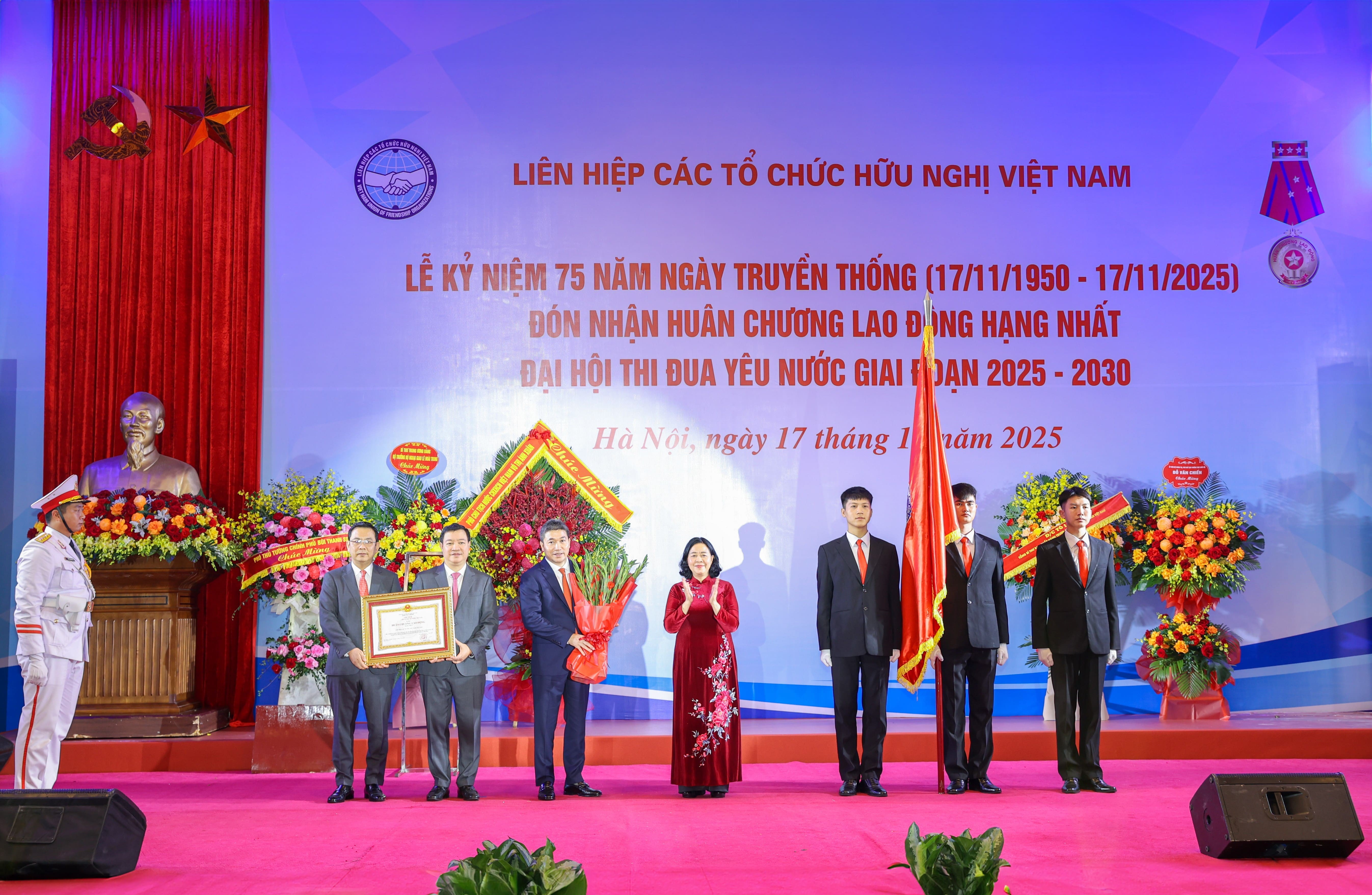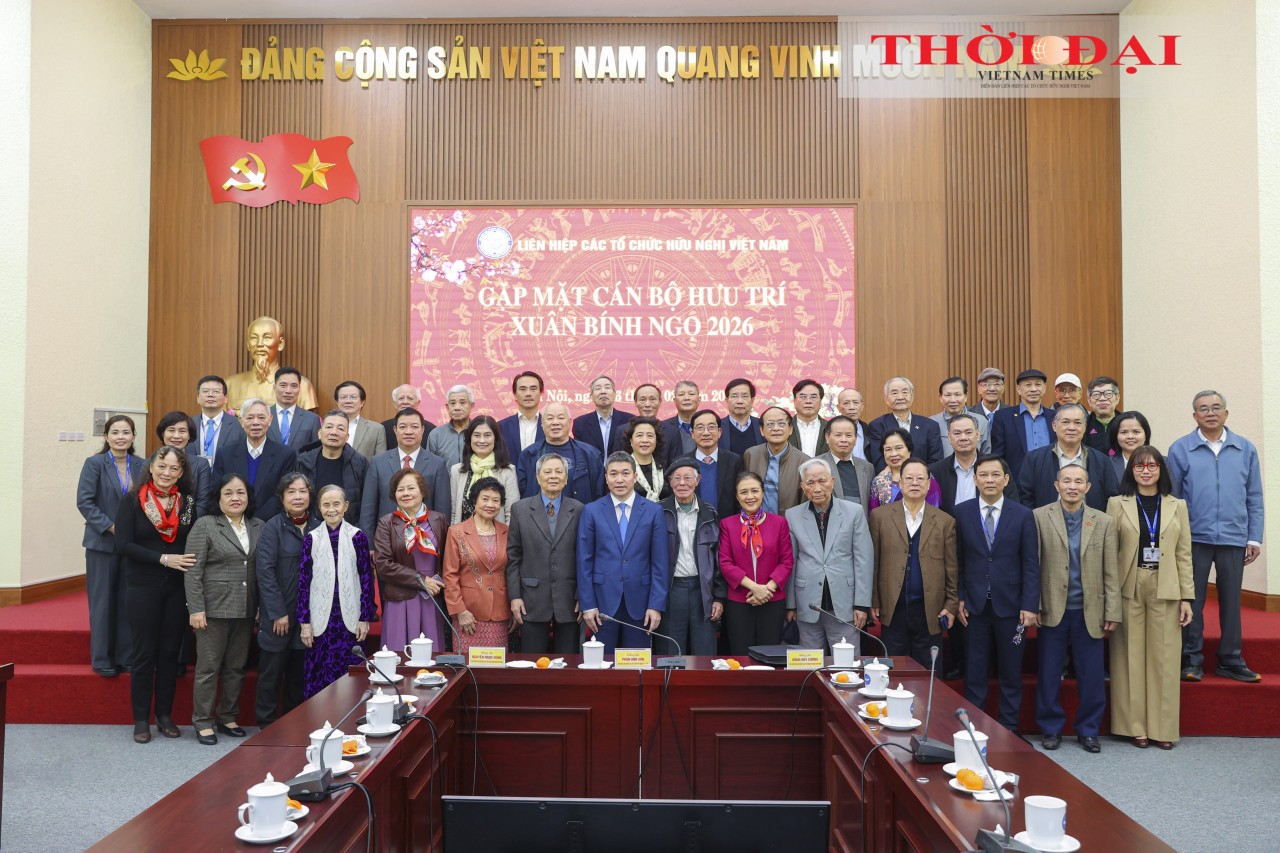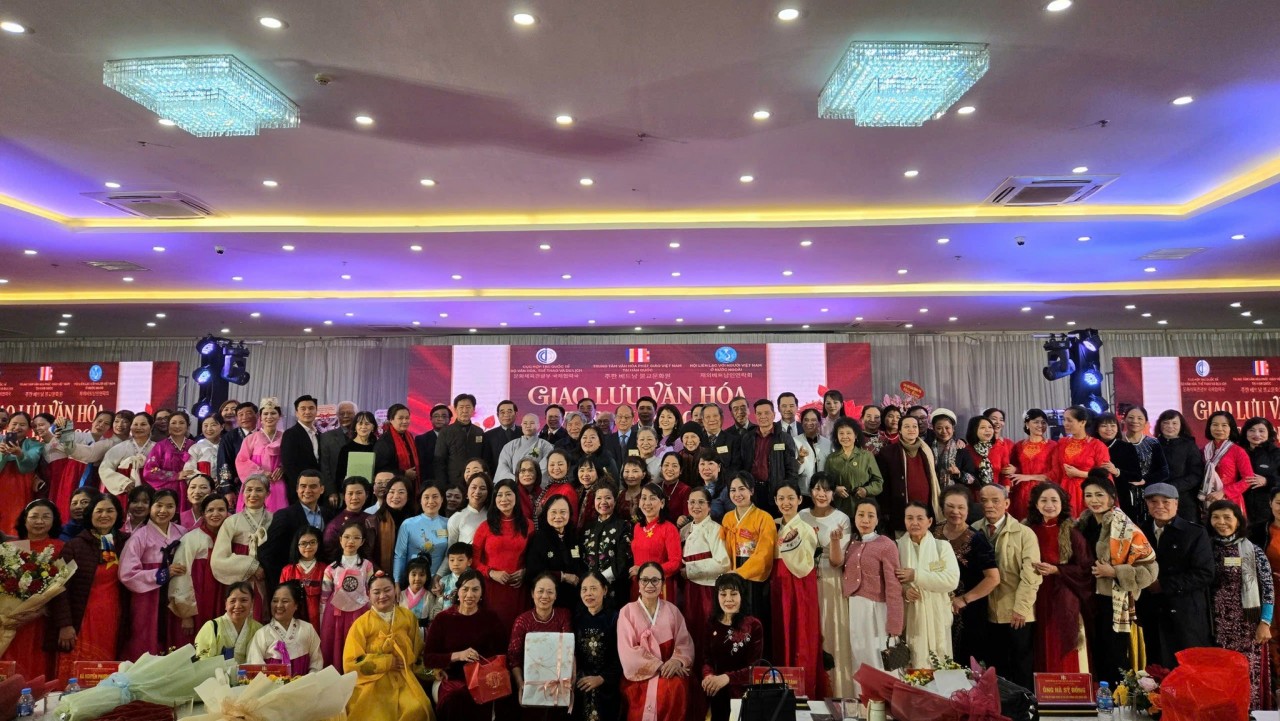Proposals for Building Vietnam’s People-to-People Diplomacy in New Era
| Strengthening People-to-People Diplomacy of Hanoi in the Context of Innovation | |
| Viet Nam-Japan Friendship Association Boosts Cultural Diplomacy and People-to-People Relation |
Luyen Minh Hong, Deputy Director-General of the Department of Multilateral Economic Cooperation (Ministry of Foreign Affairs):
Promoting People-to-People Diplomacy in Economic and Trade Cooperation
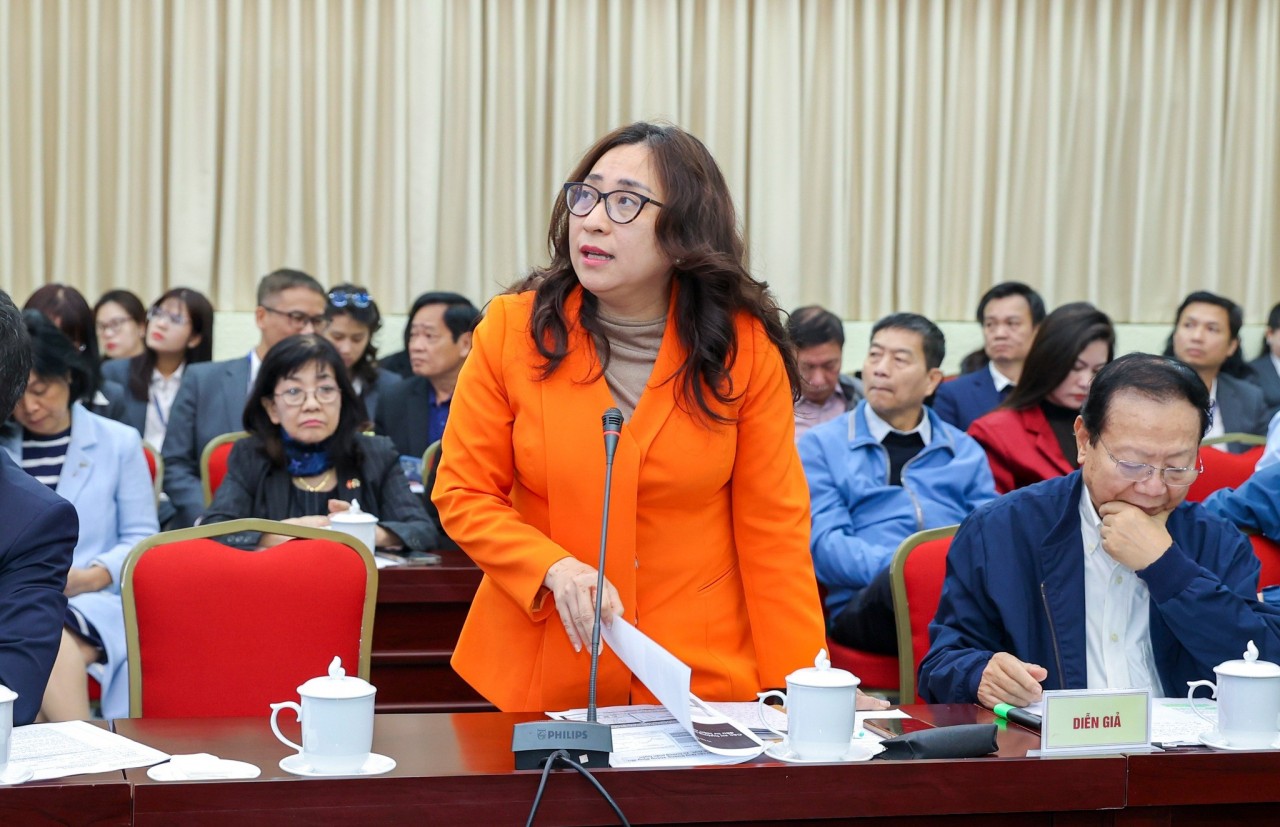 |
| Luyen Minh Hong, Deputy Director-General of the Department of Multilateral Economic Cooperation (Ministry of Foreign Affairs). (Photo: Dinh Hoa) |
People-to-people diplomacy should concentrate on three core priorities:
Creating a favorable environment: Promote Vietnam’s development guidelines and policies to help international socio-political organizations gain an accurate understanding, thereby creating advantages in economic negotiations, as third-party voices often carry high credibility.
Mobilizing external resources: Strengthen connections with non-governmental organizations and individual investors - actors that increasingly play an important role in economic cooperation and can influence local governments.
Grasping global trends: Monitor the growing influence of social organizations in trade and investment in order to proactively adapt and seize cooperation opportunities.
Senior Lieutenant General, Assoc. Prof. Dr. Nguyen Van Thanh, Vice President of the Central Theoretical Council, President of the Vietnam-Thailand Friendship Association:
Four Solutions to Enhance the Effectiveness of People-to-People Diplomacy in the New Era
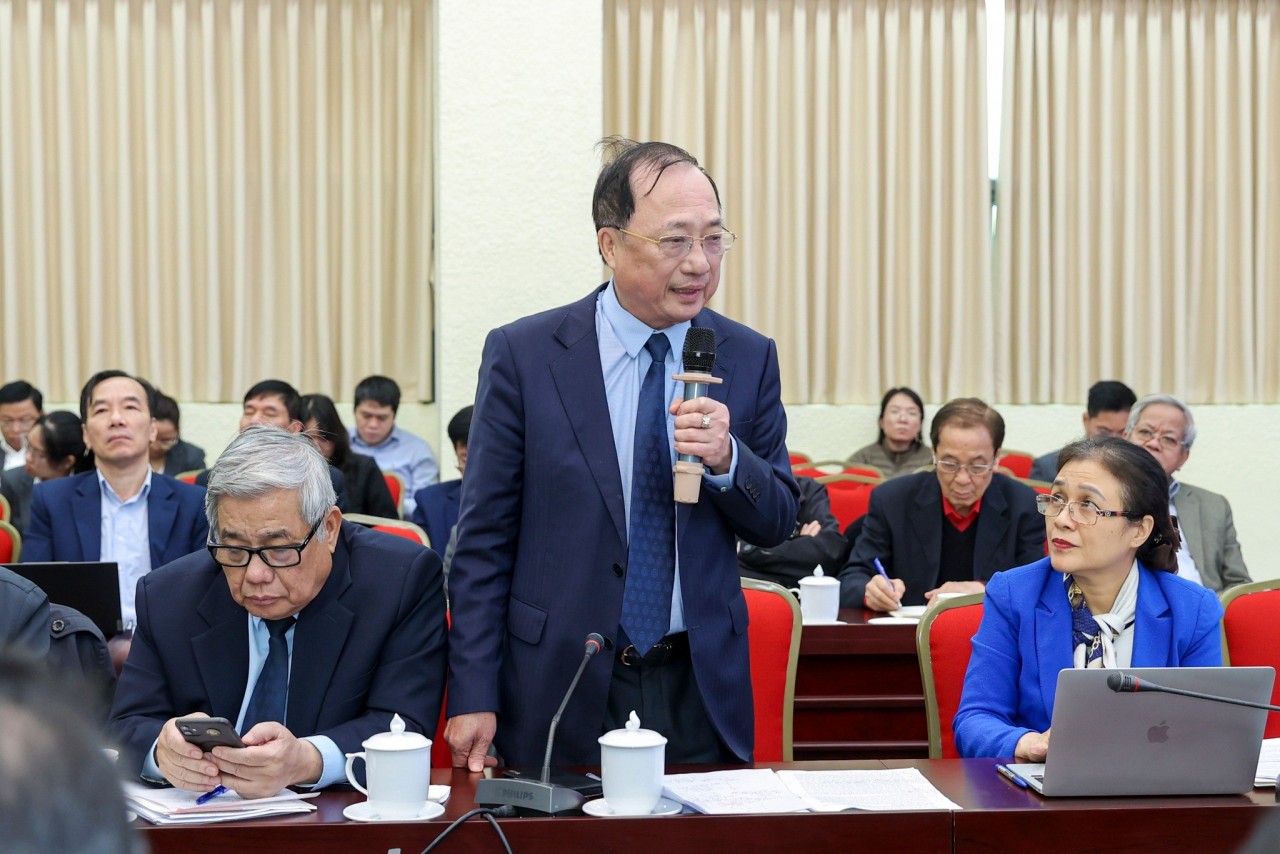 |
| Senior Lieutenant General, Assoc. Prof. Dr. Nguyen Van Thanh (center), Vice President of the Central Theoretical Council, President of the Vietnam–Thailand Friendship Association. (Photo: Dinh Hoa) |
First, improve the quality of research and strategic forecasting to provide timely consultation and advice to high-level leaders on formulating and effectively implementing people-to-people diplomatic guidelines and policies. People-to-people diplomacy should continue to uphold its role as “heartfelt diplomacy,” striving to “win the hearts and minds” of international friends; thoroughly grasp and proactively apply the motto of “proactivity, flexibility, creativity, and effectiveness,” and work alongside Party diplomacy and state diplomacy to form a combined diplomatic strength aimed at successfully achieving national development goals toward 2030 and 2045.
Second, expand the network of people-to-people diplomatic partners worldwide, especially those with whom Vietnam has established high-level cooperative relations (comprehensive strategic partners, strategic partners, comprehensive partners) and partners with strong scientific and technological capacities. This will help tap into partner resources and promote technology transfer to develop the national industrial sector. At the same time, enhance citizen protection efforts and fully leverage overseas Vietnamese resources to contribute to national development.
Third, innovate methods and broaden people-to-people communication channels, strengthening the dissemination of Vietnam’s guidelines, policies, and 40-year achievements of Doi Moi (Renewal), as well as the country’s historical, cultural, and human values. This will enable international friends and overseas Vietnamese to better understand the situation in Vietnam, thereby garnering their support for the cause of national construction and defense.
Fourth, build a contingent of highly competent, professional, and resilient people-to-people diplomatic cadres who meet regional and global standards; thoroughly implement the Politburo’s Resolution 18 on streamlining the organizational apparatus and restructuring the personnel system. Priority should be given to identifying, nurturing, utilizing, and retaining talents to meet the increasingly high demands of people-to-people diplomatic work.
Assoc. Prof. Dr. Le Phuoc Minh, Vice President of the Vietnam-Morocco Friendship and Cooperation Association:
Promoting Vietnam-Africa Cooperation in Education, Healthcare, and Agriculture
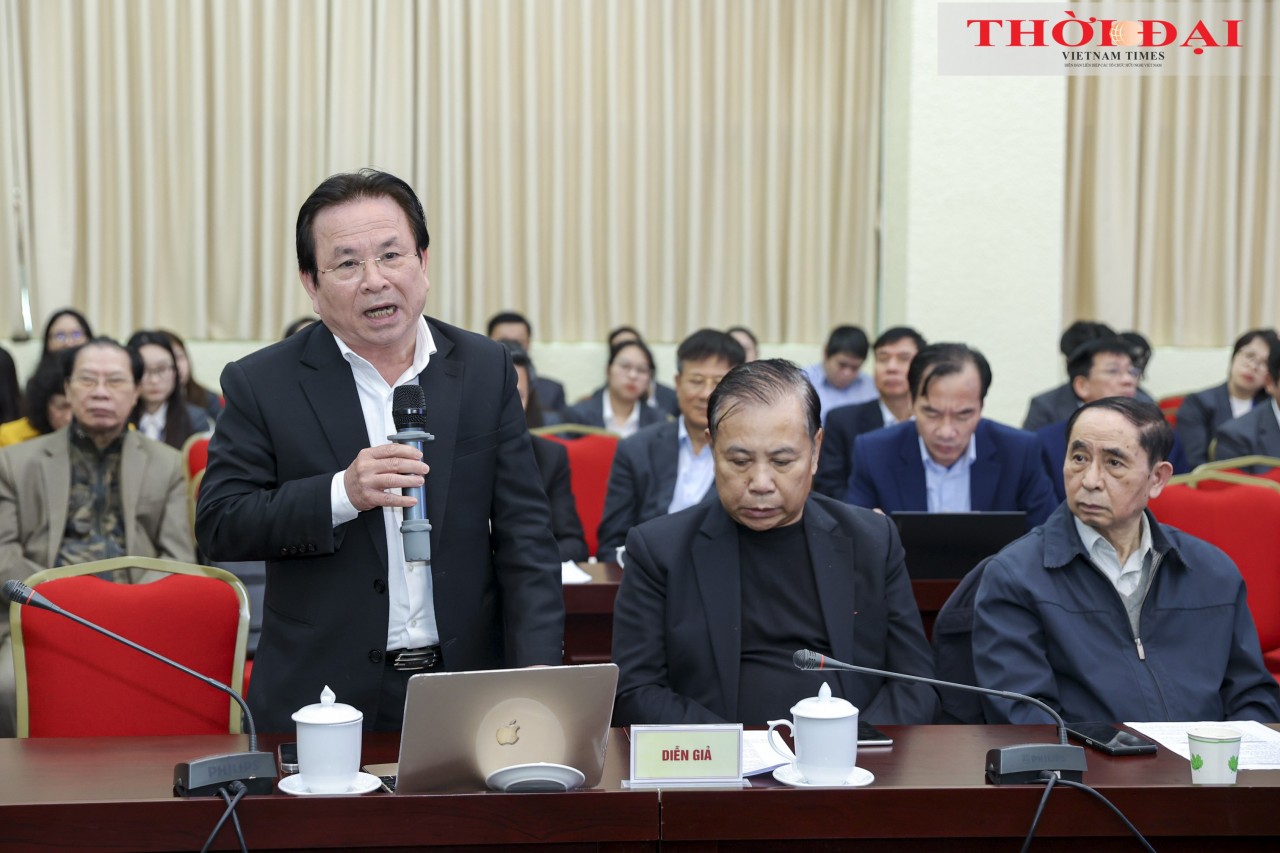 |
| Assoc. Prof. Dr. Le Phuoc Minh (far left), Vice President of the Vietnam-Morocco Friendship and Cooperation Association, former Director of the Institute for African and Middle Eastern Studies (Vietnam Academy of Social Sciences). (Photo: Dinh Hoa) |
People-to-people diplomacy must become more substantive, with a focus on promoting Vietnam-Africa cooperation in education, healthcare, and agriculture - three key sectors for sustainable development.
Africa possesses two-thirds of the world’s arable land but still faces constraints in productivity, technology, and healthcare. With experience and strengths in these fields, Vietnam should proactively seize opportunities for cooperation.
Vietnam can expand training programs for African students to develop quality human resources that serve as bridges for cooperation. At the same time, Vietnam can help strengthen healthcare capacity in Africa by sharing expertise in preventive medicine and training healthcare personnel. In agriculture, technology transfer and technical assistance will help African countries effectively utilize land resources and improve productivity.
Investing in human resources not only delivers practical benefits but also contributes to building a network of “people-to-people diplomatic ambassadors,” creating a strong foundation for long-term and extensive Vietnam-Africa relations.
Prof. Dr. Sci. Nguyen Dinh Duc, Chairman of the University Council, University of Engineering and Technology, Vietnam National University, Hanoi; Member of the Standing Committee of the Vietnam-Russia Friendship Association:
Scientists as “Ambassadors” of People-to-People Diplomacy in the Technological Era
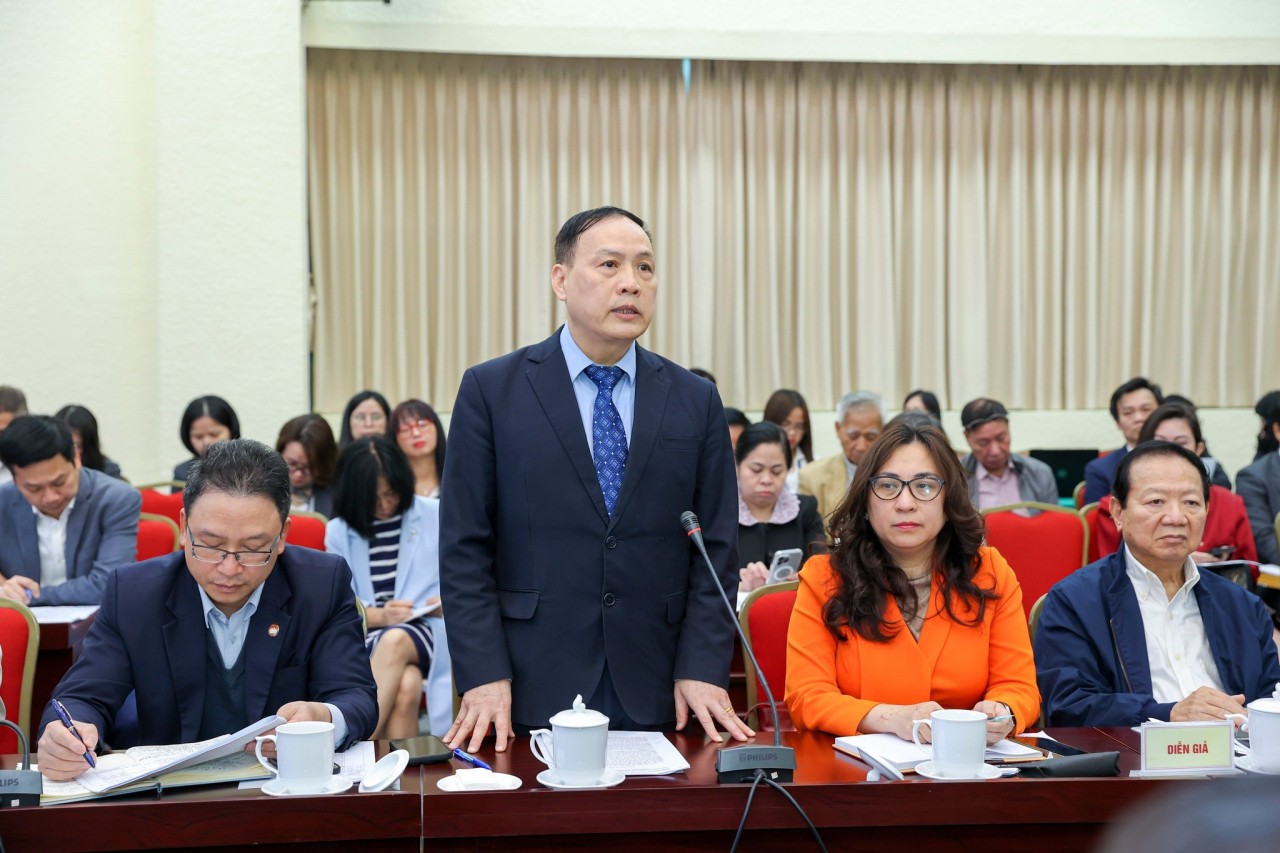 |
| Prof. Dr. Sci. Nguyen Dinh Duc (center), Chairman of the University Council, University of Engineering and Technology, Vietnam National University, Hanoi; Member of the Standing Committee of the Vietnam-Russia Friendship Association. (Photo: Dinh Hoa) |
In the current era, the development of engineering and high technology is an inevitable requirement. To advance, Vietnam must master these fields.
Research institutes, scientists, and universities constitute the core force in this process. Therefore, in addition to their professional contributions, each scientist should promote their role as a “people-to-people diplomacy ambassador,” contributing to the enhancement of international cooperation, the dissemination of knowledge, and the connection between Vietnam and the world. At the same time, those engaged in people-to-people diplomacy need to focus on fostering international cooperation in science and technology; mobilizing and creating favorable conditions for domestic scientists to actively participate in people-to-people diplomacy efforts.
James Carouso – Senior Adviser, Center for Strategic and International Studies (CSIS), United States:
Strengthening the Bridge for Information Exchange
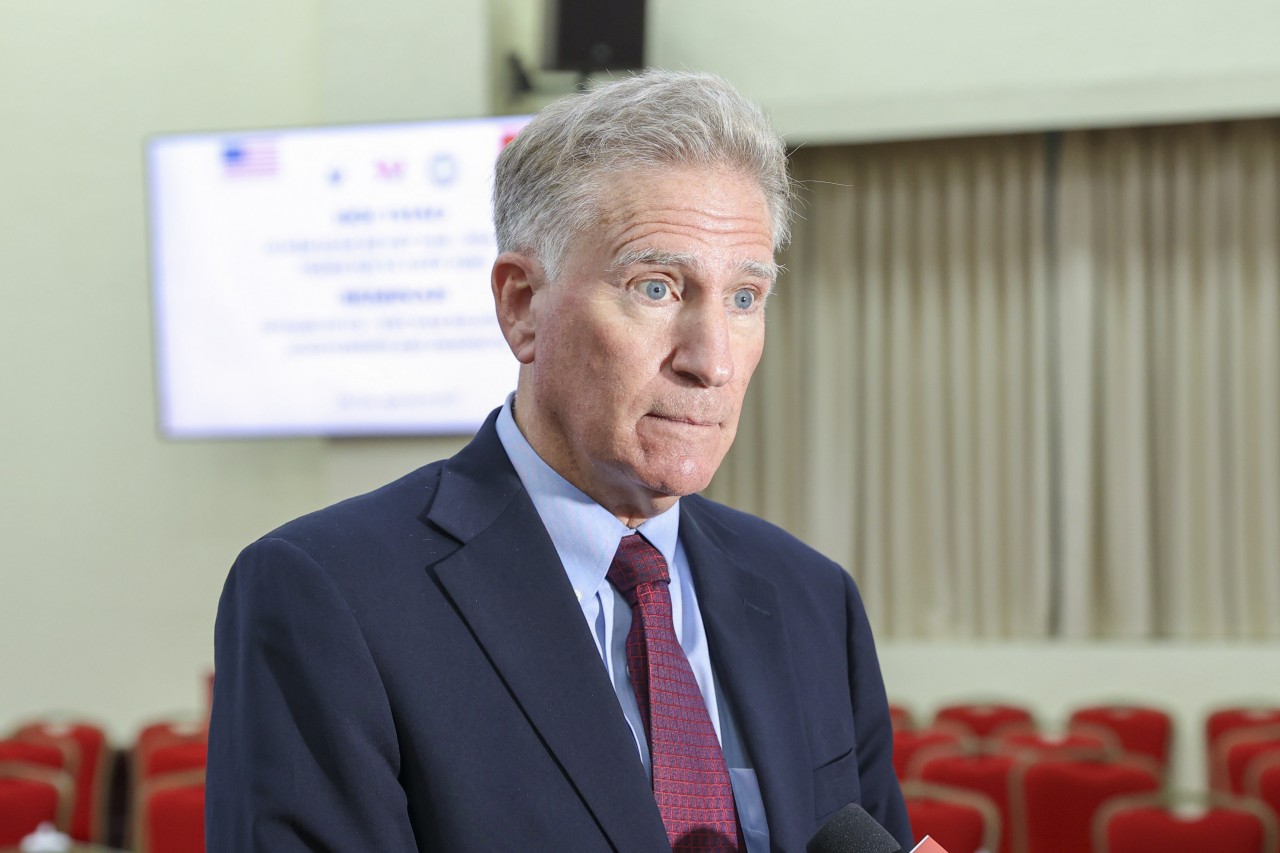 |
| James Carouso – Senior Adviser, Center for Strategic and International Studies (CSIS). (Photo: Dinh Hoa) |
The Viet Nam Union of Friendship Organizations (VUFO) can expand its exchange and cooperation activities in the United States, not only in Washington but also across various states and localities. Many organizations in the United States are willing to host and eager to hear VUFO representatives share about the significance of 30 years of Vietnam–U.S. relations, as well as the cooperation achievements attained thus far. An organization in Arizona with which I am currently cooperating has expressed a desire to meet and directly exchange views with VUFO’s leadership on this matter.
American citizens, especially the older generation, are interested in learning about Vietnam but lack updated information. Stories about Vietnam’s transformation and progress will enable them to better understand the country and its people, while fostering goodwill in bilateral relations.
In addition, VUFO should continue to promote effective cooperation between the business community and non-governmental organizations, which has contributed to establishing numerous relationships over time.
In education, while thousands of Vietnamese students study in the United States, the number of U.S. students coming to Vietnam remains limited. VUFO could collaborate with Vietnamese universities to promote two-way student exchanges.
Another proposal relates to external communication. Currently, a Vietnamese news channel has an English-language version; if broadcast in the United States, it would serve as an effective bridge to help U.S. audiences access Vietnam’s image and voice more widely.
Satu Limaye, Vice President of the East-West Center in Washington (USA):
Expanding Participation in People-to-People Diplomacy
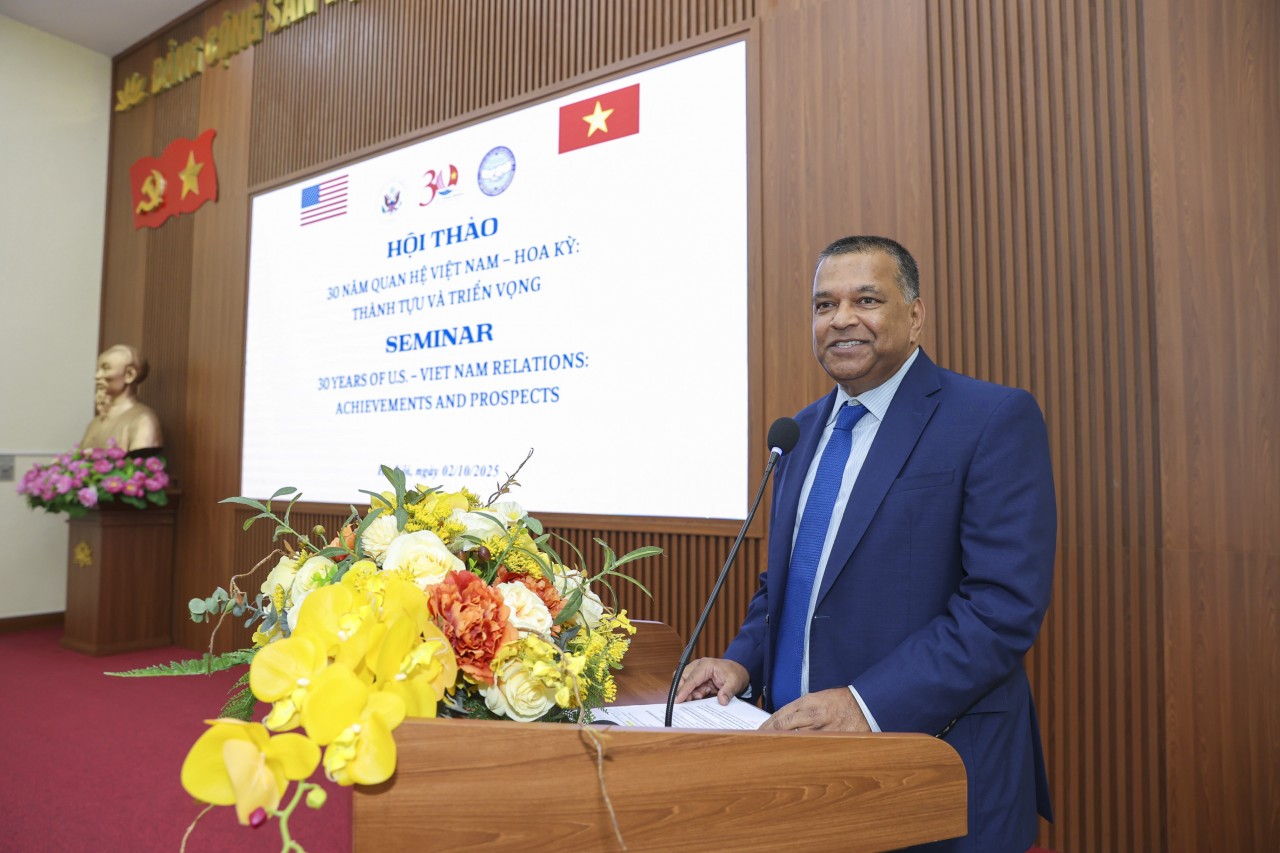 |
| Satu Limaye, Vice President of the East-West Center in Washington (USA). (Photo: Dinh Hoa) |
After 30 years, Vietnam–U.S. relations have expanded from high-level and governmental ties to diverse interactions among localities, businesses, and communities. The relationship is no longer mainly limited to governmental channels but now engages various social groups, scholars, and enterprises. This “broad distribution” creates a sustainable foundation, enhancing the relationship’s resilience and long-term development. Trends over the past three decades indicate that this relationship will continue to expand in both depth and breadth, involving more communities and partners.
The East-West Center looks forward to strengthening cooperation with VUFO to promote Vietnam-US relations, particularly through advancing professional exchanges and cultivating the next generation of leaders who will carry forward and deepen this relationship.
It is especially necessary to broaden dialogues and workshops, not only among leaders and elite circles but also across US states and Vietnamese provinces and cities, with active engagement from young people, thereby building a strong and enduring foundation for bilateral cooperation.
Do Xuan Hoang, President of the Union of Vietnamese People Associations in the Russian Federation:
Proposal to Establish a Vietnam-Russia Business Advisory Council
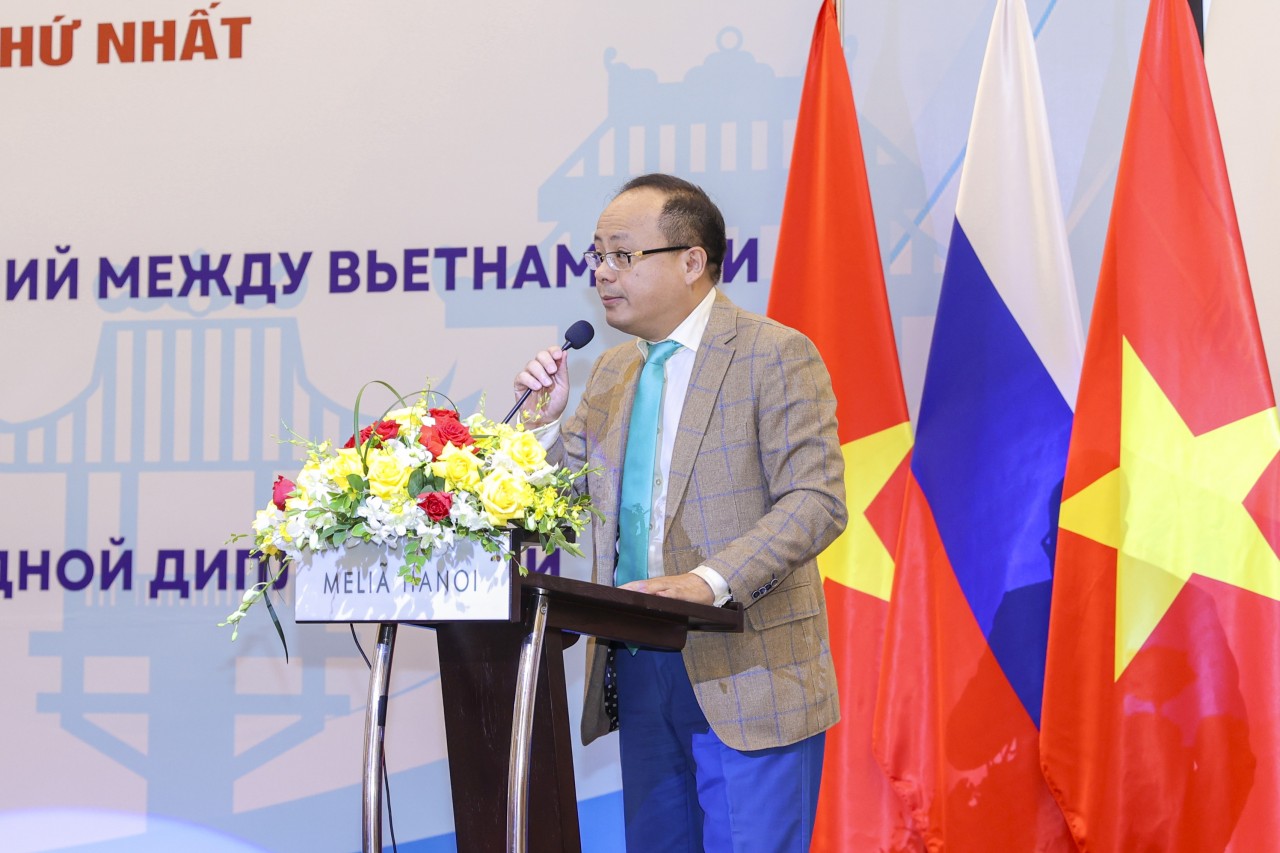 |
| Do Xuan Hoang, Chairman of the Union of Vietnamese People Associations in the Russian Federation. (Photo: Dinh Hoa) |
Vietnam has integrated deeply into international capital markets and global value chains. The Russian Federation is an industrial, scientific, and technological powerhouse with a stable consumer market. The two countries still have significant potential for cooperation in trade, tourism, agriculture, infrastructure, mining, healthcare, and education. To seize these opportunities, Vietnam needs to pursue a decisive foreign economic policy while adjusting mindsets and promptly identifying and addressing shortcomings in the cooperation environment.
In addition to existing projects in traditional sectors, market research is necessary to initiate new projects, diversify trade portfolios, and direct resources toward long-term areas. In reality, bilateral direct investment remains modest and largely state-led, with a limited share from private enterprises.
In the coming period, the number and diversity of mutual exploratory activities will continue to increase, while the business environments and practices of the two markets differ significantly. Therefore, we find it necessary to consider establishing a unified mechanism to support these activities. One example is an advisory council model with broad participation from representatives of government agencies, enterprises, scientists, experts, and social organizations. Such a mechanism could effectively support the promotion of direct engagement and the sharing of interaction experiences among stakeholders. It could also serve as a consolidated information source when businesses require assistance, participate in policy consultation, and propose timely initiatives and solutions aligned with market needs. This would enable both countries to present a comprehensive overview of their investment needs and opportunities.
Both countries have considerable potential for cooperation in the digital economy. There is a need to enhance technological autonomy, protect national data, and ensure the security of critical infrastructure. Both countries require digital platforms for electronic payments, commerce, logistics, public services, and mobile applications. To encourage cooperation, it is necessary to exchange legal frameworks, train IT personnel, identify talent, and develop IT parks with incentives, tax policies, and favorable residency and working conditions.
Beyond the economy, cultural exchange must be emphasized, continuous, and creative, while encouraging Vietnamese studies in the Russian Federation and promoting Russian language study in Vietnam. These are the social foundations for maintaining long-term stability in bilateral relations and improving the quality of training institutions in both countries.
Younger generations should be educated about history and ancestral values to build trust, maintain stability, and promote social cohesion. The Vietnamese community in the Russian Federation wishes to contribute to building a monument in Vietnam honoring labor cooperation with Soviet and Russian experts - a symbol of genuine friendship. These efforts will help translate successful political relations into concrete benefits for the peoples of both nations.
Nguyen Hong Son, President of the Hanoi Association of Enterprises:
Building a “Vietnam House” in Saint Petersburg
To ensure sustainable development for businesses of both countries and make practical contributions to Vietnam–Russia friendship, it is essential to first promote bilateral trade and investment, simplify procedures, and encourage joint industrial zone and logistics projects.
Second, cooperation in healthcare, education and training, especially in science and technology, energy, and innovation—should be strengthened, while cultural exchange, tourism cooperation, and people-to-people diplomacy should be expanded to reinforce traditional friendship.
Third, both sides should create favorable mechanisms for travel and cooperation by experts and enterprises, including simplifying entry–exit procedures and considering visa exemptions for businesspeople and specialists.
Fourth, it is important to expand support and promote cooperation across all sectors not only at the central and provincial levels, but also through enhanced connections and coordination with grassroots-level local authorities.
Finally, there is a need to develop more practical, transparent, and effective support mechanisms to facilitate and sustain cooperation between the business communities and peoples of the two countries. We propose that the authorities of St. Petersburg support the establishment of a headquarters named “Vietnam House” in Saint Petersburg, where Vietnam’s cultural images and products can be regularly showcased.
Vu Thi Tu Quyen, Deputy Director General of the Department of International Cooperation, Ministry of Science and Technology:
Science and Technology Cooperation as a Driving Force for Vietnam–Russia Relations
In the coming period, science and technology must continue to serve as a bridge enhancing mutual understanding and trust between the peoples of Vietnam and Russia. Joint research projects, academic exchanges, and scientific conferences will create opportunities for scientists, researchers, and experts of both countries to engage, learn from one another, and jointly address shared challenges. Russia is a scientific and technological powerhouse, while Vietnam has a young and dynamic workforce. Combining these strengths will generate high-value scientific and technological products and services, meeting market demands, addressing major issues facing both sides, and improving quality of life.
It is essential to leverage the role of the Intergovernmental Committee as a strategic orientation and coordination mechanism for science and technology cooperation; strengthen international cooperation; and improve the efficiency of bilateral and multilateral cooperation frameworks. People-to-people exchanges, academic exchange, joint research among institutes, universities, businesses, and social organizations should be further encouraged. Priority areas include digital technology, artificial intelligence, clean energy, nuclear energy for peaceful purposes, new materials, advanced medicine, biotechnology, aerospace, and aviation. Conditions should be created for science–technology and innovation enterprises of both countries to connect, explore markets, and co-develop new and strategic technologies. Vietnam–Russia science and technology cooperation centers should be established in priority fields.
Do Hong Xoan, Vice President of the Vietnam Tourism Association, President of the Vietnam Hotel Association:
Expanding Direct Flights and Simplifying Visa Procedures
Vietnam currently grants Russian citizens visa exemption for stays of up to 45 days. Russia is finalizing an intergovernmental agreement to implement visa-free group tours and has introduced e-visas valid for up to 30 days for Vietnamese citizens. This is an important step that narrows legal barriers and facilitates smoother two-way tourist flows.
Vietnam needs to expand and stabilize direct flights to Russia and consider aviation support mechanisms to reduce airfares. Investment in bilingual tourism workforce training should be strengthened, with more tour guides, hotel receptionists, and service staff proficient in Russian. Digital marketing efforts should be intensified: online communication campaigns in Russian should be launched in Russia, in collaboration with KOLs and travel bloggers. Vietnam should also promote specialized tourism products, such as winter beach vacations, medical and wellness tourism, golf tourism, and cultural–culinary experiences. Bilateral cooperation in tourism data management and sharing is essential to ensure safety, protect visitors’ rights, and enable rapid incident response.
Shi Guohuai, Chairman of the Jingxi CPPCC, Baise City, Guangxi:
Establishing an Exchange and Consultation Mechanism Between the Guangxi CPPCC and the Vietnam Fatherland Front
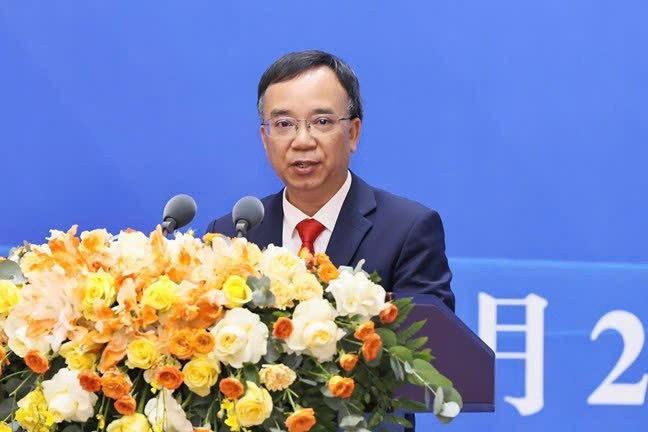 |
| Shi Guohuai, Chairman of the Jingxi CPPCC, Baise City, Guangxi. (Photo: Quang Vinh/Portal of the Vietnam Fatherland Front) |
It is necessary to establish an exchange and consultation mechanism between the Guangxi CPPCC and the Vietnam Fatherland Front in various provinces; strengthen exchanges on economic, trade, tourism, cultural, and educational issues; and further consolidate and deepen the traditional China–Vietnam friendship while promoting comprehensive cooperation and opening-up. At the same time, both sides should explore and establish mechanisms for exchanges between political parties and governments of China–Vietnam border townships, and organize activities to disseminate China–Vietnam people-oriented policies.
Efforts should be made to promote revolutionary tradition education, introduce “red” landmarks symbolizing China–Vietnam friendship, improve customs clearance convenience, and reduce trade costs through enhanced connectivity. Enterprises should be encouraged to develop cross-border e-commerce models, expand bilateral trade, support cross-border infrastructure development, and promote industrial cooperation, resource development, and agricultural processing to complement each other’s industrial strengths. Both sides should also actively advocate policies supporting border development, improving infrastructure and services, establishing pilot zones, attracting businesses, and accelerating regional economic development.
Cultural exchange should be strengthened through cross-border tourism products, especially visits to revolutionary sites associated with President Ho Chi Minh in Jingxi city. Both sides should jointly develop “red tourism” and cross-border routes, organize China-Vietnam border people festivals, and attract visitors by retracing President Ho Chi Minh’s revolutionary footsteps. Furthermore, vocational education cooperation should be enhanced to cultivate talent, and a cross-border green ecological shield should be developed to protect the environment and ensure sustainable development in the border region.
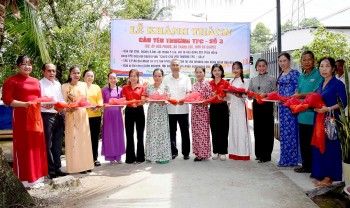 | An Giang Enhances Effectiveness of People-to-People Diplomacy In recent years, the An Giang Union of Friendship Organizations has continuously renewed the content and methods of its activities, enhancing the effectiveness of peace, ... |
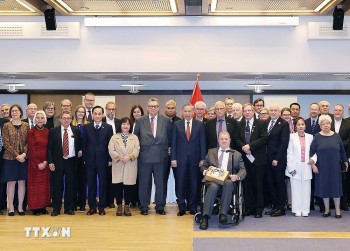 | People-to-people Exchanges - Solid Foundation for Advancing Vietnam-Finland Ties General Secretary To Lam and Finnish friends agreed to strengthen coordination and be more creative in people-to-people exchange activities with richer content, attracting the wide ... |
Recommended
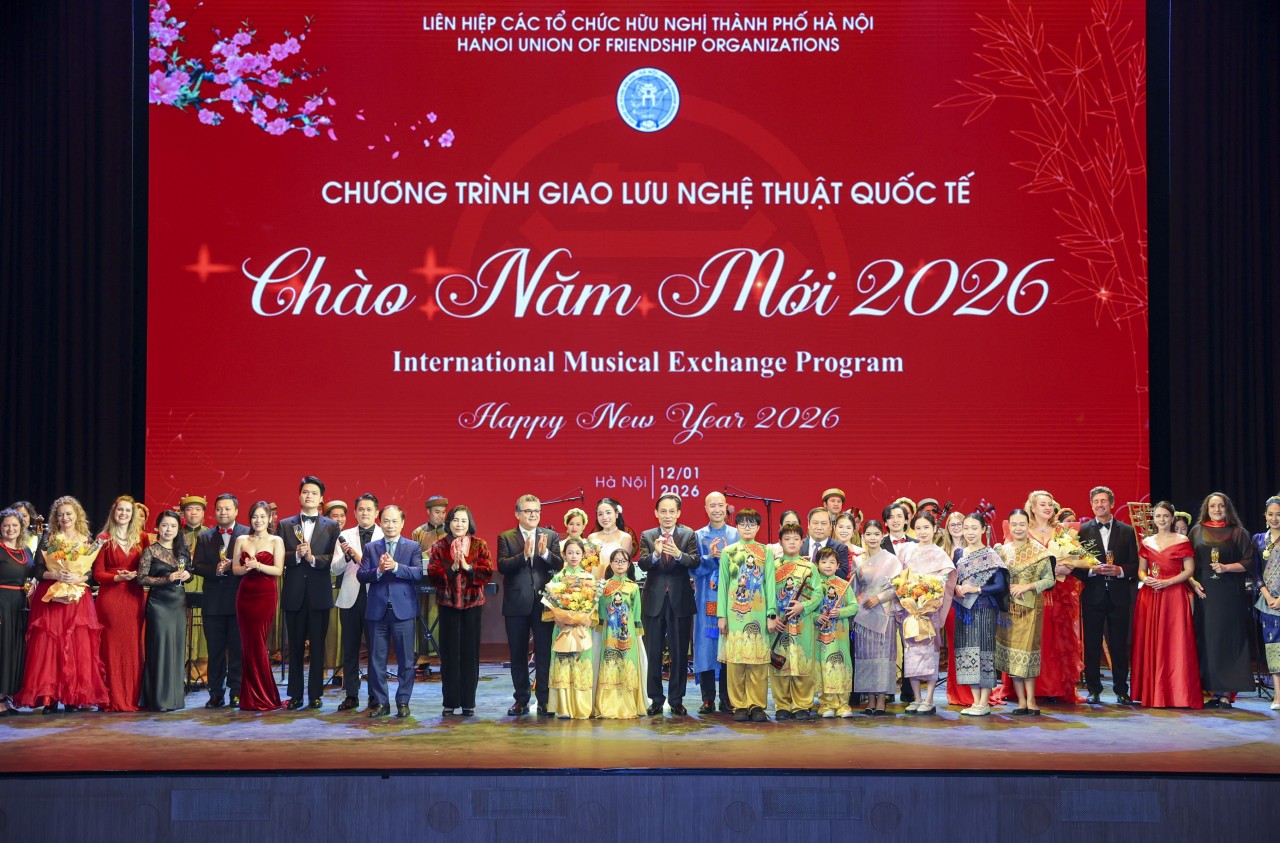 Friendship
Friendship
Hanoi Union of Friendship Organizations: Spreading Values of Peace in Heart of Capital
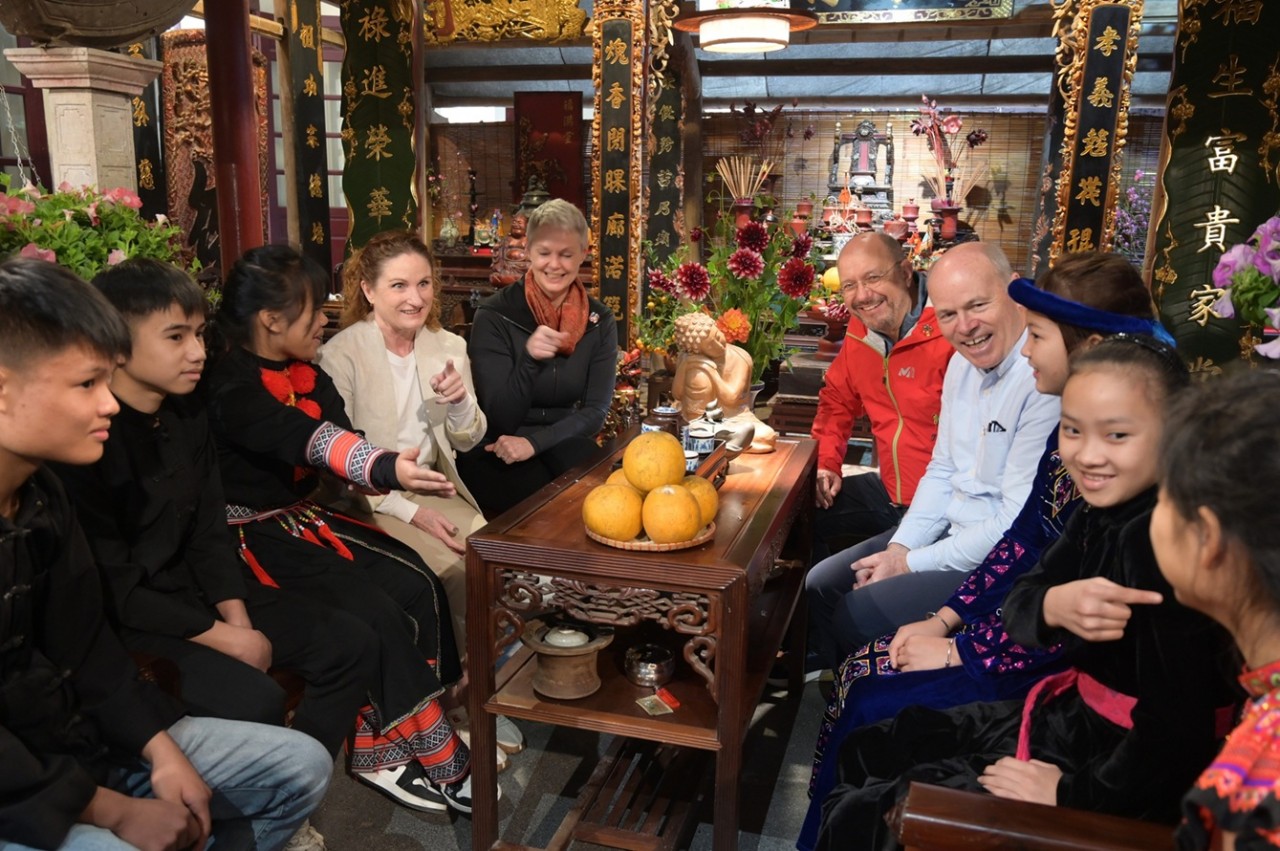 Friendship
Friendship
G4 Ambassadors to Vietnam Extend Greetings for the New Year of the Horse
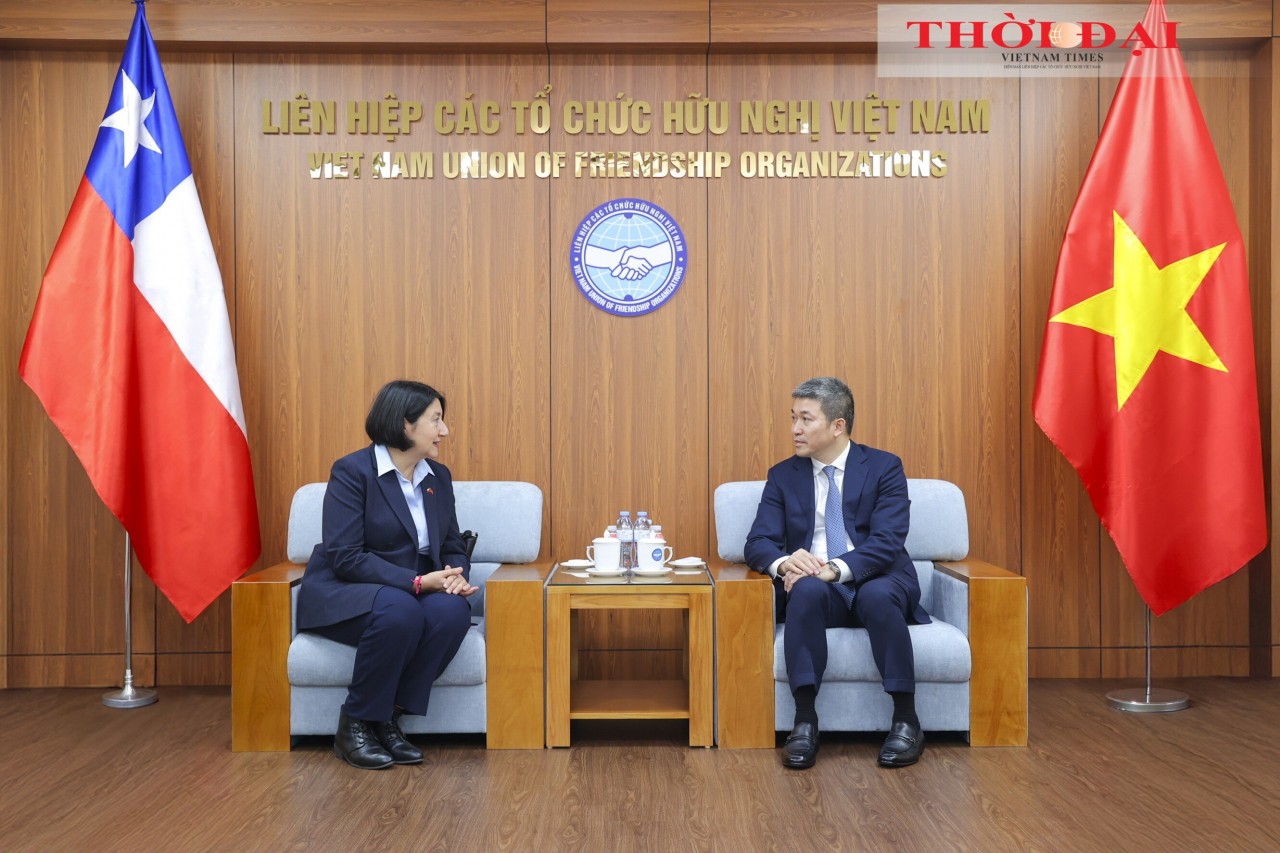 Friendship
Friendship
Promoting People-to-People Cooperation on the Occasion of the 55th Anniversary of Vietnam-Chile Relations
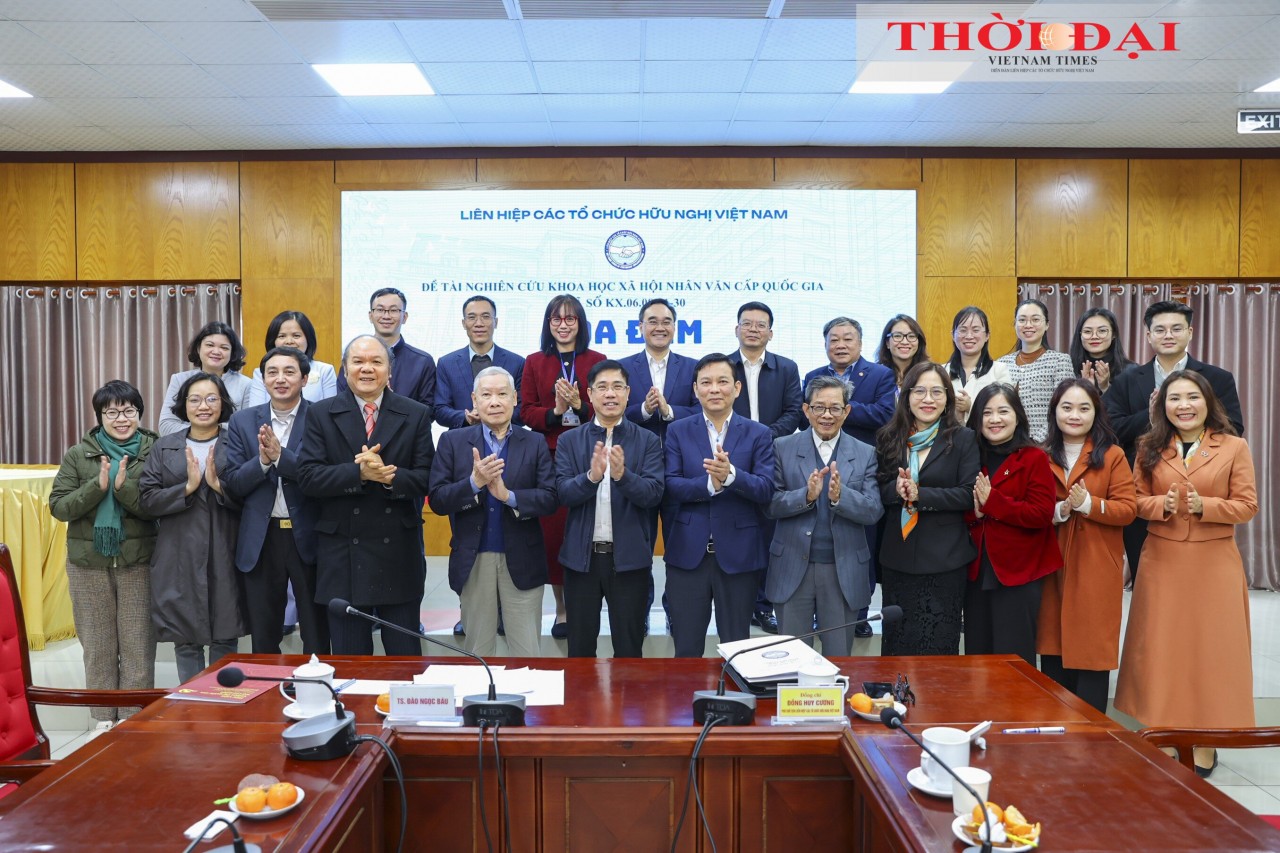 Focus
Focus
Seminar on “The Scientific Foundations of People-to-People Diplomacy in the World”
Popular article
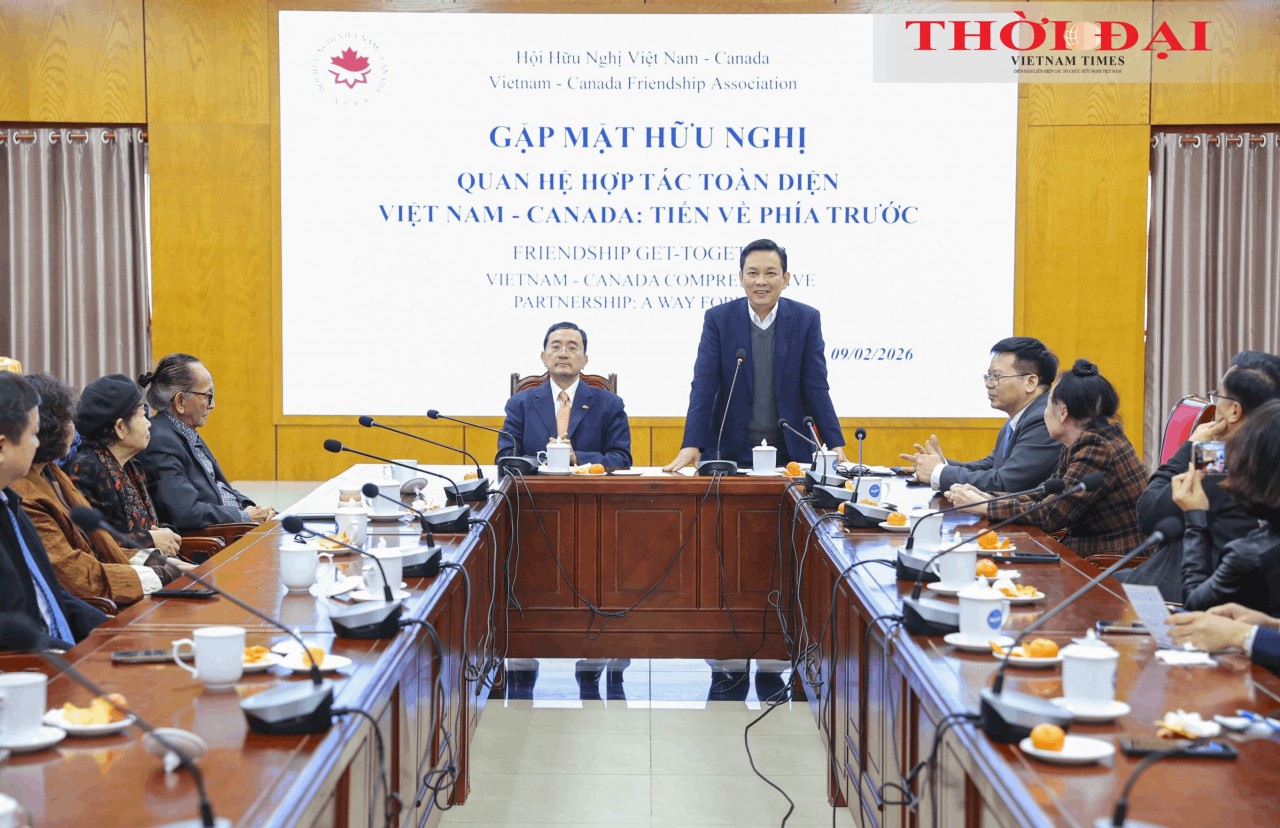 Friendship
Friendship
Vietnam-Canada Friendship Meeting: Advancing Comprehensive Cooperation through People-to-People Diplomacy
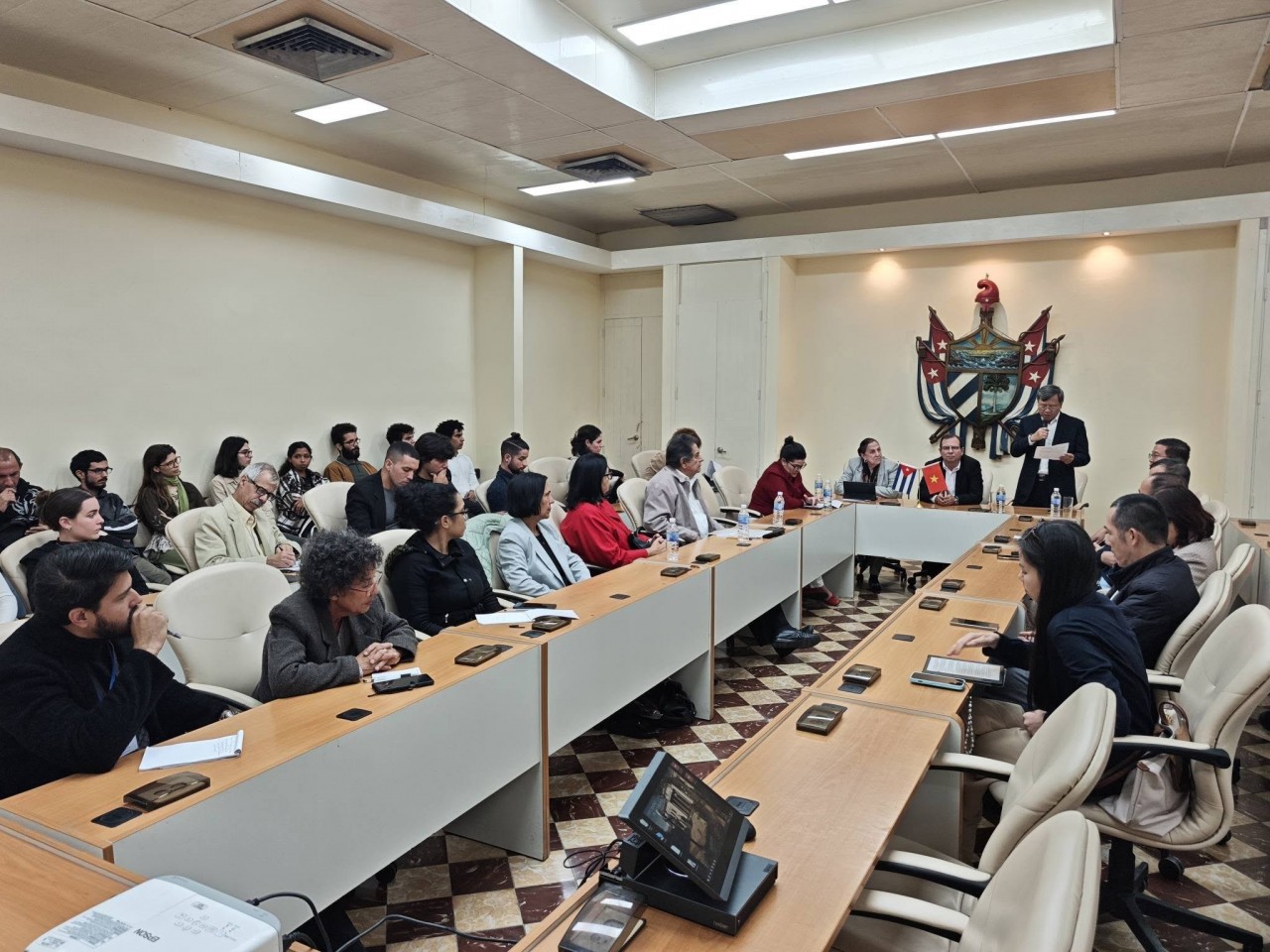 Friendship
Friendship
Seminar in Cuba Commemorates the 60th Anniversary of Fidel Castro’s Historic Statement on Vietnam
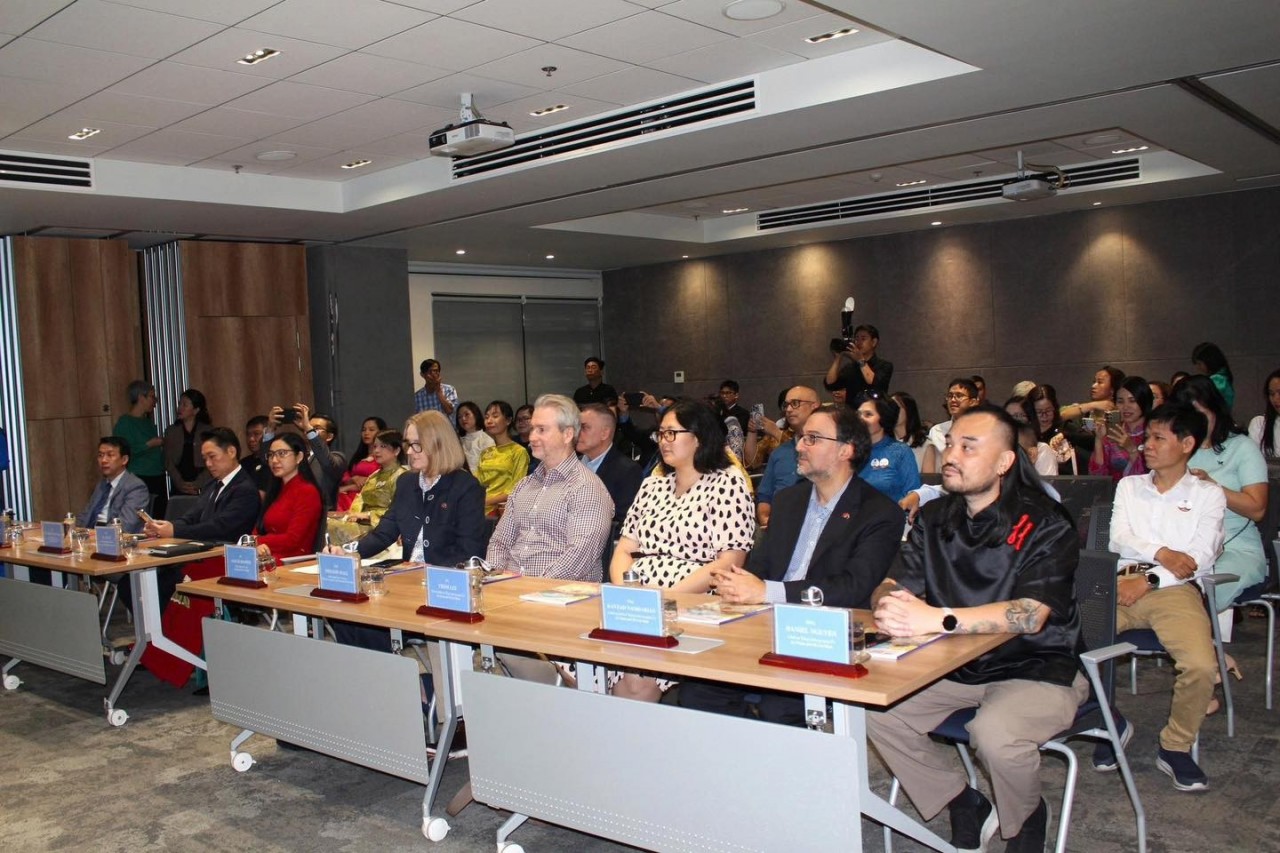 Friendship
Friendship
Ho Chi Minh City Promotes In-depth People-to-people Exchanges with Australia
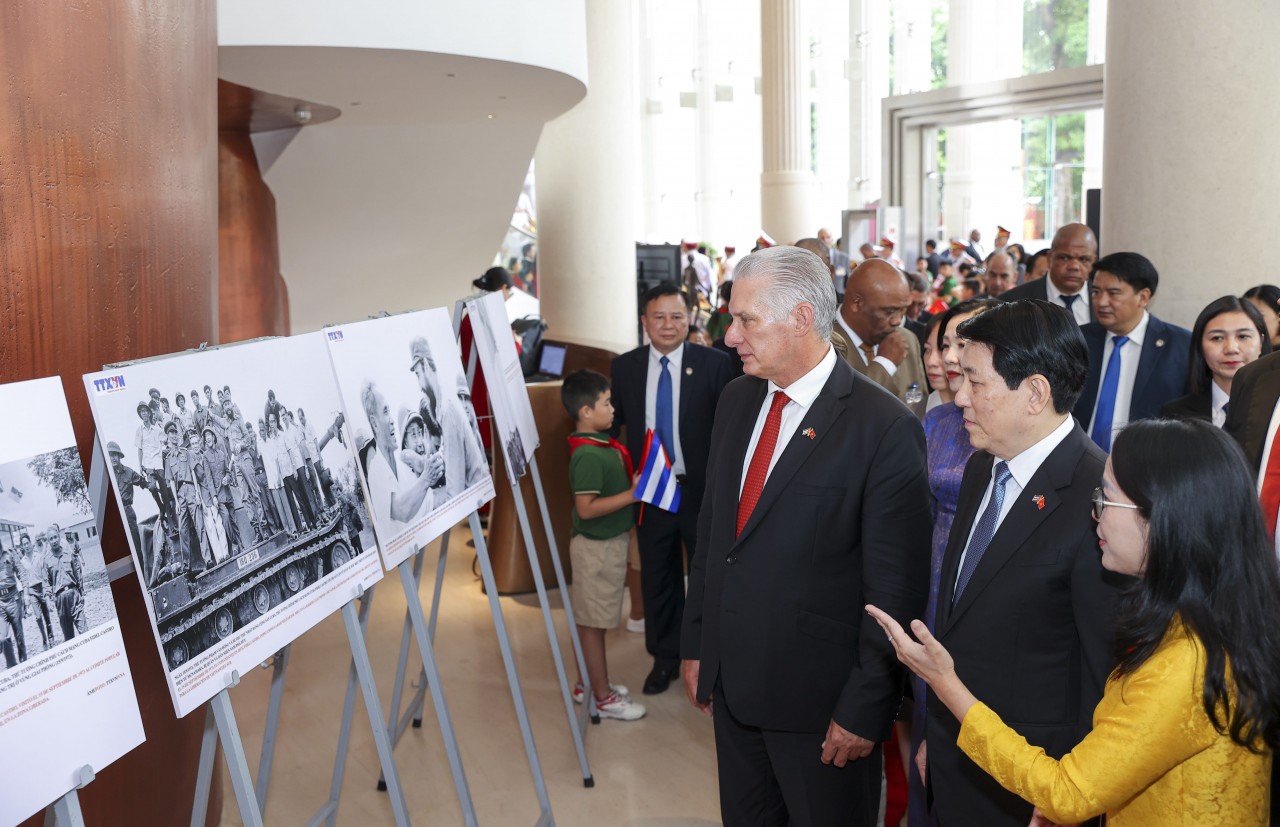 Friendship
Friendship




